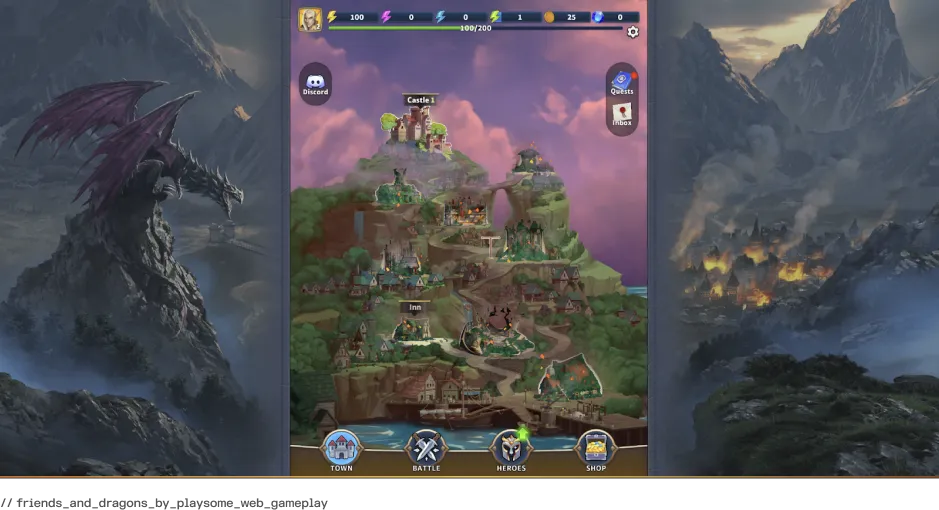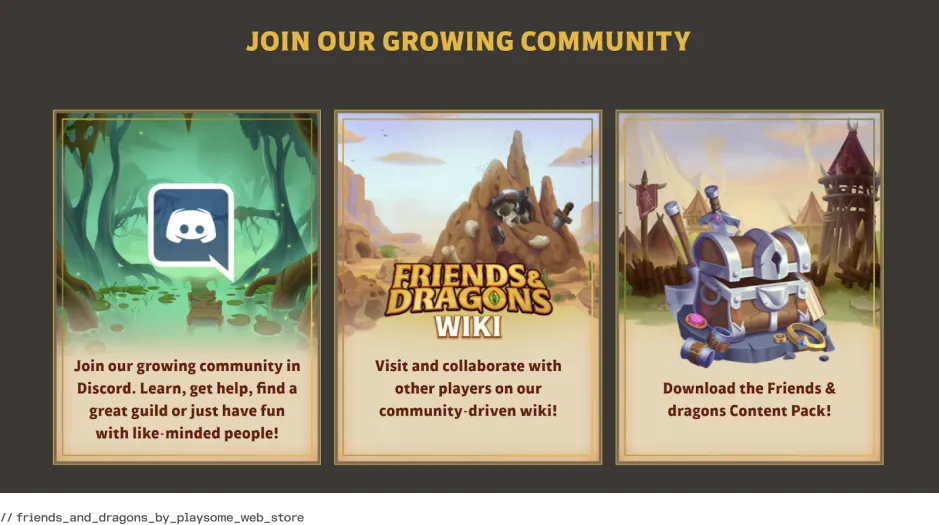Browser gaming is making a comeback. From portals like CrazyGames and Poki to Unity 6's improved web support, the opportunity for mobile developers to reach new audiences and avoid platform fees through web versions is growing rapidly.
There's a quiet resurgence happening in web-based gaming. The closure of Flash in 2021 signalled to many the death of browser gaming, and MiniClip's decision to prioritise mobile gaming in 2022 seemed like the final nail in the coffin. But browser games - including MiniClip's Agar.IO and 8-Ball pool - continue to live on.
Portals like CrazyGames (35 million MAUs) and Poki (60 million MAUs) offer large audiences and strong ad monetization options. Microsoft is expected to launch its browser-based mobile game store any minute now. Other mobile studios are taking a more DIY approach and choosing to host HTML5 versions of their titles on their own websites - see Metaplay customers Friends and Dragons (Playsome) and Rumble Arcade.
Unity has spotted the trend and is putting significant resources into having better mobile browser support in Unity 6, wading into a market which has until now been fragmented across dozens of smaller engines such as Phaser, Babylon.js and Cocos2d-JS.

This all points to a new era in mobile game development, distribution and monetization which returns the web to the heart of our industry. From giving your current user base more ways to play to reaching new users that may not be available on traditional mobile platforms, the potential benefits for mobile developers are numerous. Web-based platforms already have an interesting ad monetization and UA proposition, and the rise of web shops is solving what used to be a monetization conundrum.
How Web Versions Help You Avoid the App Store Tax
30% is one of the most prominent - and eye-roll inducing - percentages in mobile gaming. Known as the App Store or Google Play tax, all in-app purchases made through these storefronts face this commission. The full introduction of the Digital Markets Act (DMA) in March 2024 unlocked new ways for users to make purchases off-platform, unleashing a range of web shops and direct-to-consumer approaches.
One tried-and-tested method used to help developers avoid the platform fees is to release a game on the browser. Funnily enough, pre-DMA, this was actually one of the ways of meeting the criteria to have a web shop without breaking Apple's terms. As previously mentioned, browser gaming platforms such as Poki and Crazy Games don't yet have the seamless ecommerce of the App Store. Yet by getting users used to playing and engaging with your game beyond the app stores, you can use browser platforms as a funnel to your web shop without directly linking users out of the app store and incurring the 27% fee currently charged on transactions in third-party stores under Apple's new business terms.

While most studios will choose to distribute their game on these well-known platforms and select a web shop provider from one of the many now in existence, others are flying solo. Playsome, which uses Metaplay as its backend of choice, has created a hub for its Friends and Dragons title on a dedicated website, with its own browser version and also shop to sell gems. It's more work to build and maintain than simply plugging into ready-made third-party distribution and web shop tech, but even more cost-effective when it comes to revenue share and first-party user data.
Choose Metaplay to Support Your Cross-Platform Web Launch
Depending on your strategy for your game, you may be happy to have two largely distinct audiences across web and native platforms who rarely crossover. We think that's a missed opportunity in the long run. Sure, simply porting your game to the browser and using it as a funnel to your web shop may lead to a short-term increase in net revenue. But the real win is to create a sustainable and seamless cross-platform experience for your users, whether they found you first on web or mobile.
With the correct foundational tech in place, concurrent mobile and web launches, LiveOps, and updates can be pain-free, ensuring both platforms are monetized effectively and players can hop seamlessly between the two without losing their progress. Metaplay is designed to support cross-platform games from day one, with configs and segmentation tools compatible across web and mobile versions. Our Technical Director Antti Hatala recently shared 3 tips about managing your cross-platform LiveOps strategy here.
If you're ready to launch your game on the web, head to portal.metaplay.dev, evaluate the Metaplay SDK at no cost, and start shipping commercially in just a few steps.
Web Versions for Mobile Games FAQ
Is browser gaming making a comeback?
Yes. Despite the closure of Flash in 2021, browser gaming is experiencing a resurgence through HTML5 portals like CrazyGames (35M MAUs) and Poki (60M MAUs), Unity 6's improved web support, and mobile studios hosting their own web versions. The web is becoming a key distribution and monetization channel again.
How can a web version help avoid the 30% app store tax?
By releasing a browser version of your game, you can funnel players to your web shop for in-app purchases outside the app store ecosystem. This avoids the 30% platform commission and the 27% fee Apple charges on third-party store transactions under their new business terms.
Should my mobile game have a separate web audience or a unified cross-platform experience?
While some studios maintain separate audiences, the bigger opportunity is creating a seamless cross-platform experience. With the right backend technology, players can hop between web and mobile without losing progress, and both platforms can be monetized effectively through shared LiveOps and updates.
What technology do I need to launch a web version of my mobile game?
You need a game engine with good web export support (like Unity 6), a backend that supports cross-platform play from day one, and potentially a web shop provider for direct-to-consumer monetization. Tools like Metaplay provide configs and segmentation compatible across web and mobile versions.
![Return of the Web: Why Your Game Should Have a Web Version [Updated for 2026]](/images/blog/return-of-the-web-why-your-game-should-have-a-web-version-in-2024-featured.webp)
![Picking the Right Web Shop for Your Mobile Game [Updated for 2026]](/images/blog/picking-the-right-web-shop-for-your-mobile-game-featured.webp)
